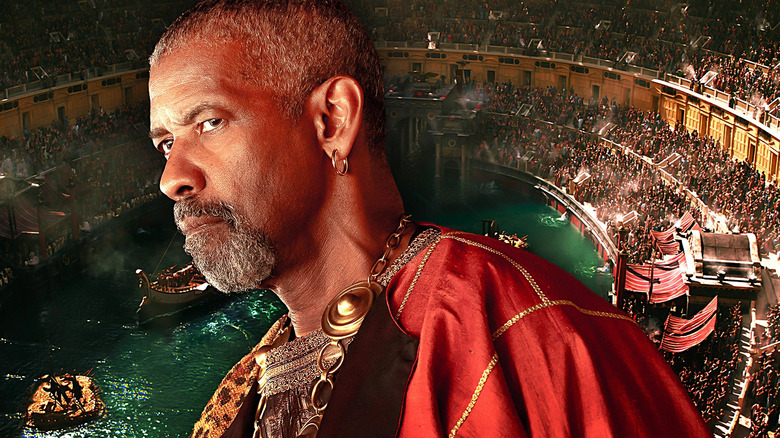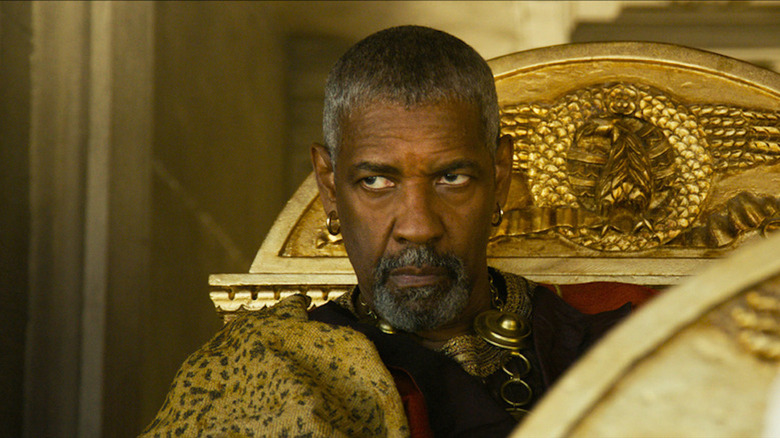The Best Supporting Actor Oscars Nomination Everyone Saw Coming Didn't Actually Happen
Ever since Oscar season became a year-round affair catering both to industry professionals and movie buffs all over the world, there has been a tendency to pencil in certain contenders sight-unseen based on their previous awards success or showbiz prominence. If Steven Spielberg has a new film on the way, it's immediately a prohibitive favorite for at least a nomination. Meryl Streep in a drama about something timely or socially important? That's one Best Actress nod most likely spoken for.
It's always a mistake to think this way. This is something I learned in 2007, when, as a participant in an Oscar prognosticating poll, I predicted Academy Award nominations across the board for "Charlie Wilson's War." How could I not? A drama about the United States' involvement in Afghanistan directed by Mike Nichols (winner for "The Graduate") and starring Tom Hanks (winner for "Philadelphia" and "Forrest Gump"), Julia Roberts (winner for "Erin Brockovich"), and Philip Seymour Hoffman (hot off his win for "Capote") was an 800 lbs. Oscar gorilla. Throw in a screenplay by Aaron Sorkin that seemingly everyone in town had read and loved, and there was scarce reason to think that this murderer's row of talent would fail to deliver.
Then "Charlie Wilson's War" screened for critics and Academy members. Though I adored the movie, the word from voters was an overwhelming "meh." When Oscar nods were announced a month later, Hoffman was the film's sole nominee.
The lesson: pedigree counts for nothing until the movie screens. And even then, you need to give the film some time to exist in voters' minds before you deem it a contender. We learned this anew when nominations for the 97th Academy Awards were announced this morning.
Denzel Washington was denied his 10th Academy Award nomination
Sequels are a tricky proposition for Oscar voters. Yes, "The Godfather Part II" and "The Lord of the Rings: The Return of the King" won the Academy's top prize, but they both came out within two years of their saga's initial installment. While last year's "Gladiator II" returned Ridley Scott to the director's chair and rounded up a load of acting talent, 24 years separated it from Scott's original Best Picture winner of 2000. It never felt necessary or timely.
The film did, however, have an ace up its sleeve in Denzel Washington. As the formidably wily Macrinus, the two-time Oscar winner (for "Glory" and "Training Day") gave a corker of a star turn that had all of Hollywood buzzing. Though reviews from legitimate (i.e. non-influencer) critics were muted in their overall praise of the film, they all agreed that Washington's dazzling performance was reason enough for the movie to exist and, most importantly, remain an outside contender for Best Picture, Director, and several other awards. "Gladiator II" probably wasn't going to win many Oscars, but Washington felt like the frontrunner for Best Supporting Actor.
But as the weeks passed, the film gradually evaporated from memory. Sure, it was a box office smash like the first movie, but Washington's bravura portrayal felt like brilliance in a vacuum. Though Paramount trotted Christopher Nolan out to host a splashy Academy screening (where he called "Gladiator II" his favorite film of 2024), the enthusiasm for the film had completely died. When Washington failed to snag a Best Supporting Actor nomination from the Screen Actors Guild, it seemed clear his name wouldn't be called this morning.
After all the spending (the film's budget was well over $210 million) and campaigning, "Gladiator II" earned just a single Oscar nomination for Best Costume Design. Washington was denied what would've been his 10th nod, but he'll be back later this year in Spike Lee's "Highest 2 Lowest," the director's hotly anticipated remake of Akira Kurosawa's "High and Low." Let's just hold off on anointing him the Oscar frontrunner for Best Actor until we see the damn movie, though.

